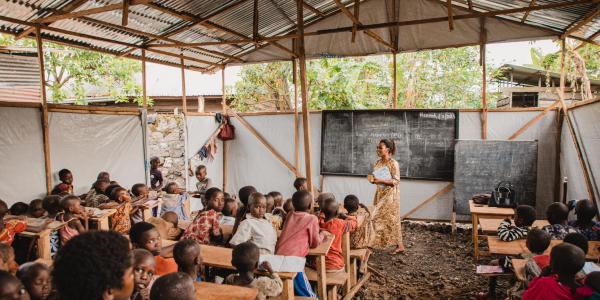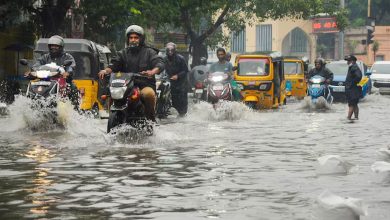The conflict in the eastern Democratic Republic of the Congo is having a terrible effect on children’s education
Taslima Jamal

The schooling of around 750,000 kids has been disturbed in two most struggle impacted areas in the eastern Popularity based Republic of the Congo (DRC).
New figures delivered by UNICEF show that between January 2022 and Walk 2023, somewhere around 2,100 schools in North Kivu and Ituri regions have been compelled to quit working in light of the decaying security circumstance.
The nearly 240,000 children who have recently been forced from their homes and are living in the vast camps surrounding Goma have suffered the most from the uncertainty. Thousands of families have been driven from their homes in search of safety by armed groups, preventing their children from attending school.
Grant Leaity, a representative for UNICEF, stated, “School-aged children are paying an unacceptable price for the growing conflict and insecurity in eastern DRC.” Hundreds of thousands of children, who ought to be learning in a safe environment in the classroom, have been forced to flee their homes due to violence and are now living in terrible conditions in vast, overcrowded camps.
Due to the scale of the crisis, the majority of children living in the displacement camps are unable to attend school, and only a small number are able to access Child Friendly Spaces or Temporary Learning Centres supported by UNICEF.
There are few places where displaced children can take their June final exams and earn official credentials.
The data, which were compiled by an education coordination group led by UNICEF and made up of national authorities as well as a network of local and international NGOs in Ituri and North Kivu, demonstrate that:
- 119 schools have been attacked, occupied or temporarily used by armed groups.
- Nearly 1,700 schools have been forced to close due to persistent insecurity (mostly because they are in areas controlled by armed groups.)
- Nearly 300 schools cannot operate because they are being used as shelter by people displaced by conflict.
- Separate UN figures published earlier this year show that conflict in the east of the DRC has displaced more than 5.3 million people, with more than 800,000 people forced to flee their homes in North Kivu alone since the start of the M23 crisis in March 2022.
In addition to training teachers on pertinent subjects like child psychosocial support, UNICEF is supporting the construction of Temporary Learning Spaces and providing students with school supplies.
Following an earlier distribution of chairs and tables for teachers, UNICEF also provided more than 10,320 displaced and host community students in the Ituri provincial capital of Bunia with educational and recreational supplies in March 2023.
In order to get a clear picture of how many children are left behind without access to an education, UNICEF has made it a priority to keep an accurate record of school closures and attacks on schools in eastern DRC.




